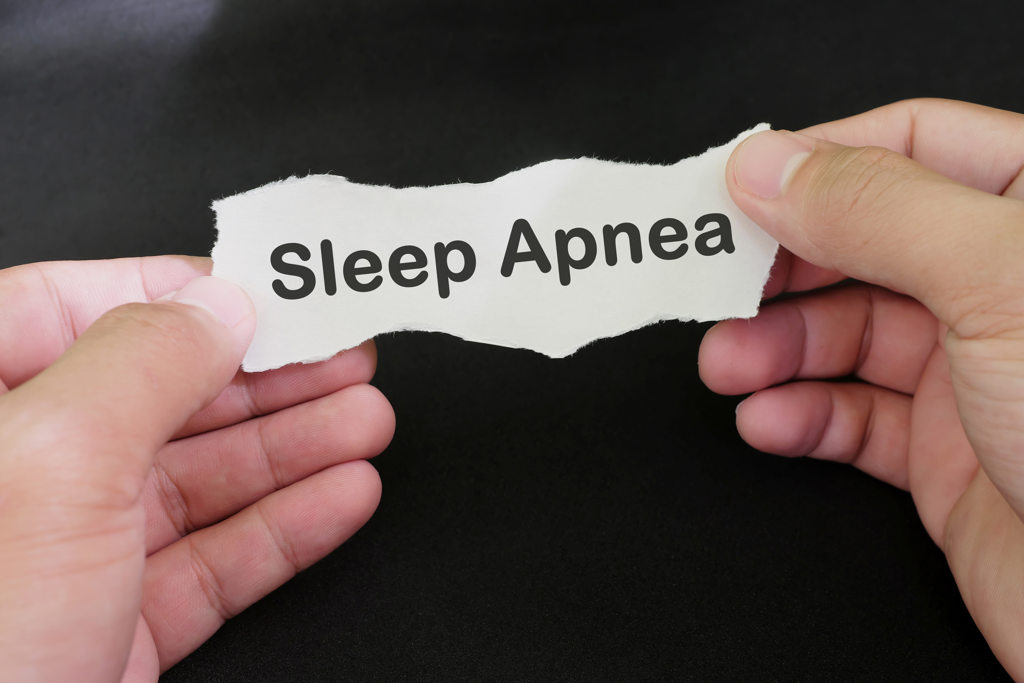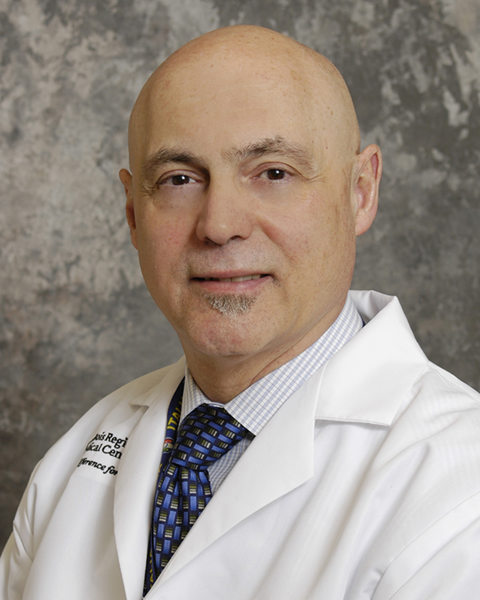Do You Suffer From Sleep Apnea?

Sleep is just as vital for your health and well-being as a balanced diet and regular exercise. It enhances cognitive function, uplifts mood and promotes good health. A lack of consistent, high-quality sleep increases your risk for obesity, heart disease, kidney disease, depression and diabetes, and it can lead to serious injuries, irritability, reduced work performance, increased healthcare costs and a lower quality of life.
An estimated 50 million to 70 million people in the U.S. have a sleep disorder, and sleep apnea is one of the most common. Sleep apnea affects one in five American adults, and unlike other sleep disorders, many people do not know they have it. In fact, they may be getting the recommended seven to eight hours of sleep each night. That is why it is important to know the risk factors and signs of sleep apnea.
What is sleep apnea?
Sleep apnea occurs when breathing is repeatedly interrupted during sleep. Because your body is unable to get sufficient oxygen while sleeping, you must wake up to breathe, even if you do not realize you are waking up. This frequent waking leads to poor quality sleep. There are two main types of sleep apnea:
- Central sleep apnea is when the brain fails to tell the body to breathe during sleep. This type is uncommon.
- Obstructive sleep apnea is when the airway collapses during sleep and air is unable to get through. This type accounts for the majority of sleep apneas.
Both types of sleep apnea are serious medical conditions that require a proper diagnosis with a sleep apnea test and treatment.
What causes obstructive sleep apnea?
There are numerous physical causes of obstructive sleep apnea, including being overweight, having a large neck circumference, having a small upper airway and having a large tongue or tonsils. Other causes include alcohol or opioid use, smoking, being 40 or older and genetics.
Is sleep apnea dangerous?
Yes, sleep apnea can be dangerous. The sleep disorder affects much more than just how refreshed you feel in the morning. The condition can cause your blood pressure to become high. As a result, your risk for heart disease increases.
“Sleep apnea also may be linked to Type 2 diabetes,” said Angelo Illuzzi, DO, FCCP, D, ABSM, FAASM, Medical Director, Sleep Disorders Center and Medical Director of Respiratory Care for Penn Highlands Healthcare. “Obesity increases your risk for both Type 2 diabetes and sleep apnea, and there is evidence that sleep apnea might increase the risk of insulin resistance, resulting in Type 2 diabetes.”
Sleep apnea also diminishes your alertness, leading to injury. It can lead to work accidents and car crashes caused by drowsy driving. That is why it is so important to get a sleep apnea test if you think you have the condition.
How do I know if I have sleep apnea?
“The only way to know for sure is to have a sleep apnea test,” said Dr. Illuzzi. “If you are sleepy during the day even after sleeping seven to eight hours at night, or if your bed partner says you snore loudly or has witnessed you gasping for air in your sleep, talk to your doctor about getting a sleep apnea test.”
Other signs of sleep apnea include problems paying attention, waking up often in the middle of the night, sexual dysfunction and having a dry mouth or headaches when you wake up.
What is a sleep apnea test?
A sleep apnea test, also called a sleep study, is a medical test that tracks your breathing, heart rate, eye movement and other indicators while you sleep. The results will show the physician how many times your breathing was interrupted during the night. He or she will use the information collected during the test to determine if you have sleep apnea and what type.
The Sleep Centers at Penn Highlands Healthcare offer treatment for sleep apnea and other sleep disorders to help you get quality, restorative sleep. The pulmonologists at Penn Highlands Healthcare offer a full range of sleep-centered care, from diagnosis through treatment and follow-up. Penn Highlands also offers a home sleep study that lets you receive a diagnosis right from the comfort of your own bed. If you need to go to a lab for your sleep study, all of their sleep centers are fully accredited by the American Academy of Sleep Medicine. To learn more, visit www.phhealthcare.org/sleep.

